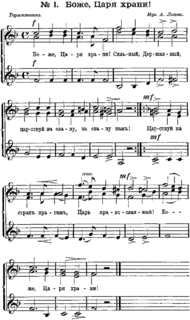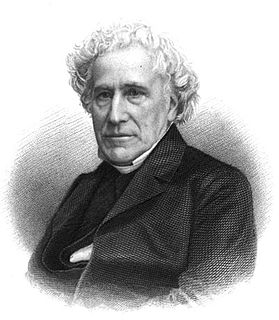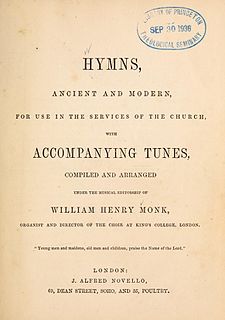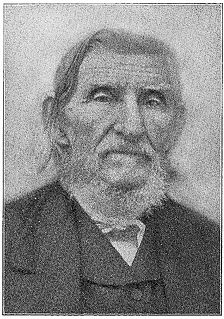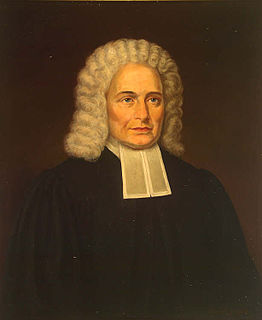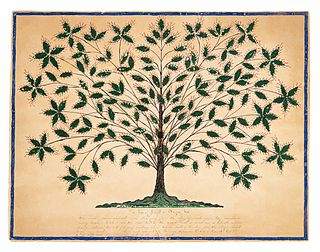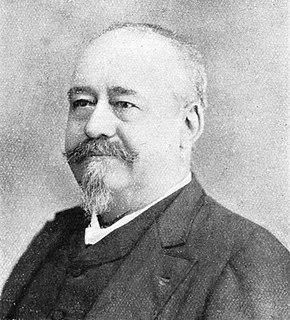William J. Henry (December 2, 1867 – November 26, 1955) was an American hymn writer and evangelist.

A hymn is a type of song, usually religious, specifically written for the purpose of adoration or prayer, and typically addressed to a deity or deities, or to a prominent figure or personification. The word hymn derives from Greek ὕμνος (hymnos), which means "a song of praise". A writer of hymns is known as a hymnodist. The singing or composition of hymns is called hymnody. Collections of hymns are known as hymnals or hymn books. Hymns may or may not include instrumental accompaniment.
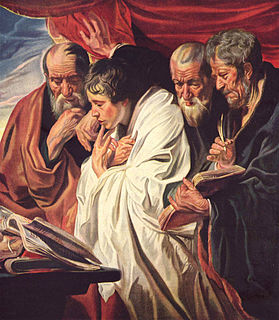
In Christianity, evangelism is the commitment to or act of publicly preaching (ministry) of the Gospel with the intention of spreading the message and teachings of Jesus Christ.
He originated from Ohio. He was an early leader in the Holiness Movement near Boyertown, Pennsylvania. From 1889 to 1895, he toured eastern Pennsylvania and New Jersey for several months each year, holding revival meetings. In 1893, he traveled to Liverpool, England, and founded a small congregation there. He later founded a congregation in Springfield, Missouri, which he served as pastor for 13 years. [1]
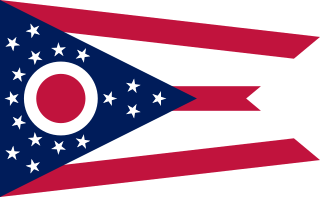
Ohio is a Midwestern state in the Great Lakes region of the United States. Of the fifty states, it is the 34th largest by area, the seventh most populous, and the tenth most densely populated. The state's capital and largest city is Columbus.

Boyertown is a borough in Berks County, Pennsylvania, United States. The population was 4,055 at the 2010 census. This was approximately a 2.9% population growth since the 2000 U.S. Census.

Pennsylvania, officially the Commonwealth of Pennsylvania, is a state located in the northeastern, Great Lakes and Mid-Atlantic regions of the United States. The Appalachian Mountains run through its middle. The Commonwealth is bordered by Delaware to the southeast, Maryland to the south, West Virginia to the southwest, Ohio to the west, Lake Erie and the Canadian province of Ontario to the northwest, New York to the north, and New Jersey to the east.
He wrote more than 300 hymns, several of which continue to be included in hymnals. Some have been translated into German and Scandinavian languages. [1] One of his hymns, "Fully Saved Today" (1911), is the basis of the gospel blues song "Church, I'm Fully Saved To-Day" (1930) by the Texan Blind Willie Johnson.
Gospel blues or holy blues is a form of blues-based gospel music that has been around since the inception of blues music, a combination of blues guitar and evangelistic lyrics. Notable gospel blues performers include Blind Willie Johnson, Sister Rosetta Tharpe, Reverend Gary Davis and Washington Phillips. Blues musicians such as Boyd Rivers, Blind Lemon Jefferson, Charley Patton, Sam Collins, Josh White, Blind Boy Fuller, Blind Willie Mctell, Bukka White, Sleepy John Estes and Skip James have recorded a fair number of Gospel and religious songs, these were often commercially released under a pseudonym.
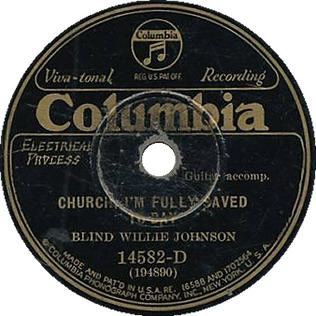
"Church, I'm Fully Saved To-Day" is a gospel blues song recorded by Blind Willie Johnson in 1930, with backing vocals by Willie B. Harris, sometimes identified as his first wife. It was released on Columbia 14582-D, as B-side to "The Soul of a Man".

Texas is the second largest state in the United States by both area and population. Geographically located in the South Central region of the country, Texas shares borders with the U.S. states of Louisiana to the east, Arkansas to the northeast, Oklahoma to the north, New Mexico to the west, and the Mexican states of Chihuahua, Coahuila, Nuevo León, and Tamaulipas to the southwest, while the Gulf of Mexico is to the southeast.
